Q&A: Cho Chong Gee
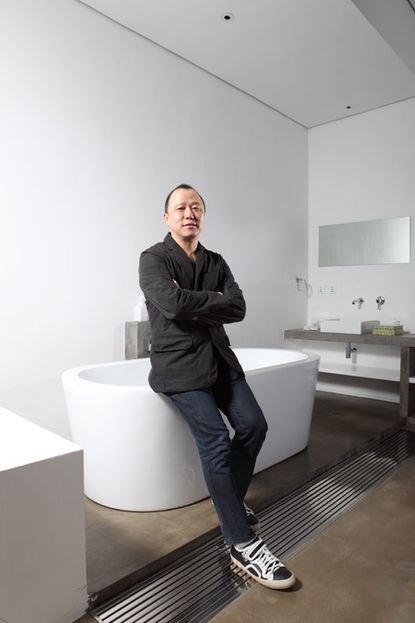
Bar, restaurant and hotel owner, Cho tells us why he's hooked on the Doncheng district of Beijing
With no less than four venues all set within Doncheng, proprietor Cho Chong Gee has had some pretty firsthand involvement in the regeneration of this up-and-coming part of town. A Malaysian entrepreneur based in Beijing since 2001, Cho started out from the humble beginnings of a small hawker stall in Malaysia, to becoming the creator of some of the capital’s more interesting spaces.
Café Sambal, his first Malaysian restaurant in China, was one of the first to be located within the confines of Gulou’s hutongs. Bed Bar and 3 + 1 Bedrooms, his boutique hotel, both followed not far away and Paper, a modern minimalist Chinese restaurant sits quite comfortably on Gulou Dongdajie. Here he reveals his special relationship with the district, and his tips on the best that Dongcheng has to offer.
What made you decide to set up in Beijing?
Beijing wasn’t planned, it happened completely by chance. I happened to be on holiday in Beijing and met a local businessman. I decided to come back and work with him on various design and restaurant projects, together with some management consultancy work.
All of your ventures – 3 + 1 Bedrooms, Café Sambal, Bed Bar and Paper - are based in the Dongcheng district. Is there a reason for this?
It is one of the very few charming old hutong districts left in Beijing. Its history goes back to the Qing and Ming Dynasties. Local residents inhabit many of the hutongs in the district so everything still feels very authentic and real. You could say the place serves very much as a sort of ‘living history’ of Beijing.
Wallpaper* Newsletter
Receive our daily digest of inspiration, escapism and design stories from around the world direct to your inbox
So would you say that you have a special relationship with the Dongcheng district?
No, not really. Having said that, Cafe Sambal was the first 'foreign' restaurant & bar in this area. When I first set it up, not even ‘Beijingers’ or local Chinese people were visiting the area. Café Sambal then led on to the creation of Bed Bar, Paper and 3+1 Bedrooms. Of course, this area has now grown to become one of the more popular areas in Beijing and our relationship with the district keeps growing stronger and stronger!
Could you describe your business set-up and philosophy?
I always try to create a space that myself, my friends and my family would feel very comfortable to be spending time in. It is so important to produce something special and unique in its own right, whilst making sure that it fits well into the area and that the customers are given the very best. For example, the menus that I put out comprise of food that I love, and the food served always has a quality that would pass by my very own standards.
What are the challenges of working in Beijing?
There is a lot of uncertainty sometimes. Dealing with the local authorities can be challenging, added to the fact that there are changes in rules and regulations on a daily basis.
What is your next project?
There are a few things on the go. There is the possibility of setting up a Cafe Sambal in Shanghai, perhaps another concept restaurant in Beijing, and a design consultancy firm with a few partners from Guangzhou and abroad.
Rosa Bertoli was born in Udine, Italy, and now lives in London. Since 2014, she has been the Design Editor of Wallpaper*, where she oversees design content for the print and online editions, as well as special editorial projects. Through her role at Wallpaper*, she has written extensively about all areas of design. Rosa has been speaker and moderator for various design talks and conferences including London Craft Week, Maison & Objet, The Italian Cultural Institute (London), Clippings, Zaha Hadid Design, Kartell and Frieze Art Fair. Rosa has been on judging panels for the Chart Architecture Award, the Dutch Design Awards and the DesignGuild Marks. She has written for numerous English and Italian language publications, and worked as a content and communication consultant for fashion and design brands.
-
 Frank Stephenson’s high-flying capsule design for HALO’s balloon-powered space flights
Frank Stephenson’s high-flying capsule design for HALO’s balloon-powered space flightsSpace start-up HALO promises zero-emission travel to the stratosphere in a futuristic viewing capsule shaped by Frank Stephenson Design
By Jonathan Bell Published
-
 Back to Black: all eyes on film-maker Sam Taylor-Johnson
Back to Black: all eyes on film-maker Sam Taylor-JohnsonBack to Black cinematographer Polly Morgan tells Wallpaper* how a shared love of French New Wave close-ups brought Sam Taylor-Johnson’s Amy Winehouse biopic to life
By Craig McLean Published
-
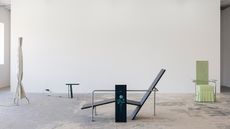 Formafantasma’s new collection explores nostalgia and the queer identity
Formafantasma’s new collection explores nostalgia and the queer identityFormafantasma present 'La Casa Dentro' at Fondazione ICA Milano (until 19 July 2024), where they draw inspiration from the domestic sphere and their own nostalgic perceptions of home
By Laura May Todd Published
-
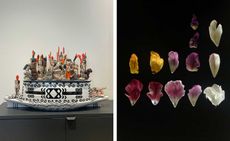 At home with designer Sebastian Herkner
At home with designer Sebastian HerknerSebastian Herkner finds inspiration in his extensive travels around the globe and the spirit of optimism of his adopted hometown of Offenbach
By Rosa Bertoli Published
-
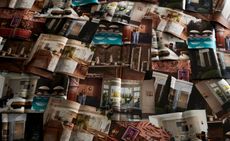 At home with Kelly Wearstler
At home with Kelly WearstlerAmerican designer Kelly Wearstler talks about her approach to interiors, her California homes, favourite LA spots, creative inspiration and more
By Rosa Bertoli Last updated
-
 Ritesh Gupta’s Useful School: ‘Creative education needs to centre on people of colour’
Ritesh Gupta’s Useful School: ‘Creative education needs to centre on people of colour’Creative industry veteran Ritesh Gupta on launching Useful School, a new virtual learning platform that puts people of colour front and centre
By Pei-Ru Keh Last updated
-
 Ilse Crawford judges Wallpaper* Design Awards 2022
Ilse Crawford judges Wallpaper* Design Awards 2022London Design Medal laureate Ilse Crawford – part of the six-strong jury for the Judges’ Awards, the Wallpaper* Design Awards’ highest honours – on design for a better reality, and our worthy winners
By Rosa Bertoli Last updated
-
 Luca Guadagnino judges Wallpaper* Design Awards 2022
Luca Guadagnino judges Wallpaper* Design Awards 2022Italian film director Luca Guadagnino, who recently expanded his work into design and interiors, talks about his projects and judging the Wallpaper* Design Awards 2022
By Laura Rysman Last updated
-
 Nendo’s Oki Sato on challenges, new talent, and ‘taking the difficult way’
Nendo’s Oki Sato on challenges, new talent, and ‘taking the difficult way’Oki Sato, founder of prolific Japanese studio Nendo, reflects on past and present challenges – including designing Tokyo’s Olympic cauldron – and, for Wallpaper’s 25th Anniversary Issue ‘5x5’ project, selects five young talents ready to pick up the torch
By Danielle Demetriou Last updated
-
 Formafantasma on their GEO-Design master’s programme, and designers thinking big
Formafantasma on their GEO-Design master’s programme, and designers thinking bigThe Italian design duo – and Designer of the Year in the 2021 Wallpaper* Design Awards – are among our featured visionaries in ‘5x5’, Wallpaper's 25th anniversary project. They discuss their first year heading the GEO-Design master’s programme at Design Academy Eindhoven, educating students for a changing world, and their pick of five creative leaders of the future who are expanding the practice of design
By TF Chan Last updated
-
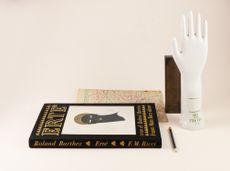 New vision for Franco Maria Ricci’s art publishing legacy
New vision for Franco Maria Ricci’s art publishing legacyItalian art collector and publisher Franco Maria Ricci passed away in September 2020. His nephew Edoardo Pepino was entrusted with his artistic legacy, including the world’s biggest bamboo maze and Ricci’s eponymous publishing house, which is set for a relaunch in late 2021
By Maria Cristina Didero Last updated